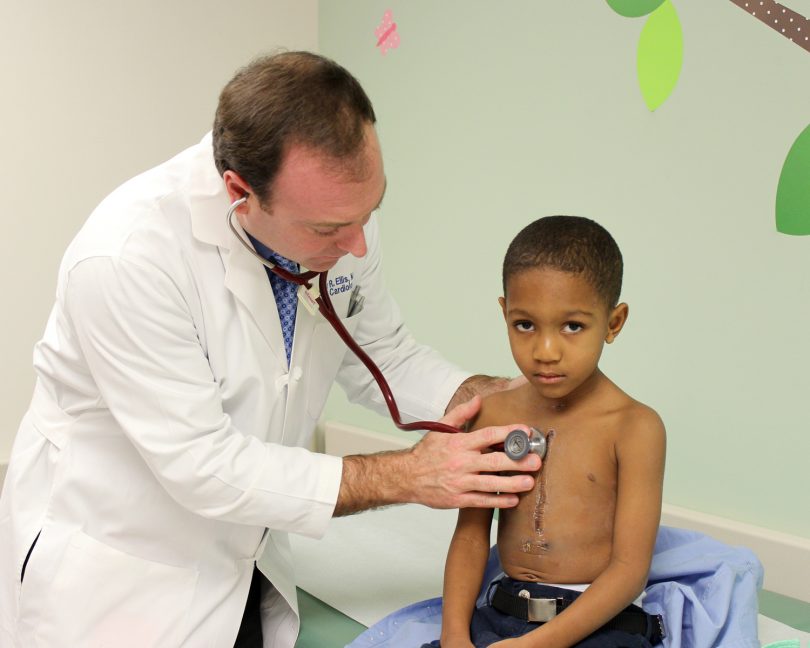Dr. Alexander Ellis transcends land and language barriers to mend what we all have in common—human hearts.
Written by Chris Jones
—
Angele’s hair literally fell out of her head from stress. Andy, her first and only child, was born with Tetralogy of Fallot, a type of congenital heart defect. Had Andy been born in the United States, he would have been operated on at six months of age. But Andy is four—and Haitian.
Angele, a single mother who works in finance, was paying Andy’s medical expenses out of pocket. In Haiti, a day’s wage is estimated at 70 Haitian dollars—a mere $1.76 US. One of Andy’s appointments cost more than a week’s pay — 500 Haitian dollars. Transporting him to doctors was also a challenge since many Haitians rely on public transportation and don’t live in metropolitan areas where the hospitals exist. It was during an appointment she came in contact with Boston-based Partners in Health through its Right to Health Care volunteers. Andy was offered free surgery and the family flew into Boston to have it performed.
“His future was relatively bleak,” explains Dr. Alexander Ellis, cardiologist at Children’s Hospital of The King’s Daughters in Norfolk, Va., citing that Andy was “three-and-a-half years overdue for this surgery.”
Tetralogy of Fallot is a rare condition caused by a combination of four heart defects that are present at birth. These defects, which affect the structure of the heart, cause oxygen-poor blood to flow out of the heart and into the rest of the body. Infants and children with Tetralogy of Fallot usually have blue-tinged skin because their blood doesn’t carry enough oxygen.
The corrective procedure involves closing a large hole in the bottom chambers of the heart and cutting out a lot of muscular obstruction underneath the pulmonary valve, describes Ellis. Andy’s operation took three to four hours and was performed by Dr. M. Ali Mumtaz, chief cardiac surgeon at CHKD. Ellis was present.
“[Andy] had a very nice repair,” compliments Ellis. “He still has a little bit of obstruction beneath his pulmonary valve that was left intentionally because we didn’t want to cut through the valve because we know he wouldn’t have access to cardiac care or surgery going forward [back in Haiti].”
The condition rendered Andy’s mother heartbroken because he had the vigor of a child, but the stamina of a man twenty times his age.
“[Before his surgery he was] vomiting, he lost weight, he was always tired and couldn’t play with other children his age, but since surgery he’s been fine,” says Angele, speaking in Haitian Creole through translator Nadege Auguste, also Haitian and who works with Partners in Health in Boston. Angele holds that she has been very impressed with Ellis and the quality of care she has received stateside from Partners in Health, CHKD and the Ronald McDonald House, who has provided the family food and shelter.
Had he not received surgery, Andy wouldn’t have lived to see his twentieth birthday. He can now return to Haiti with a future to look forward to despite the lack of adequate cardiac care in his homeland. “Andy’s condition is what we call palliative,” describes Ellis. “It can’t be cured, but it can be managed with proper care.”







